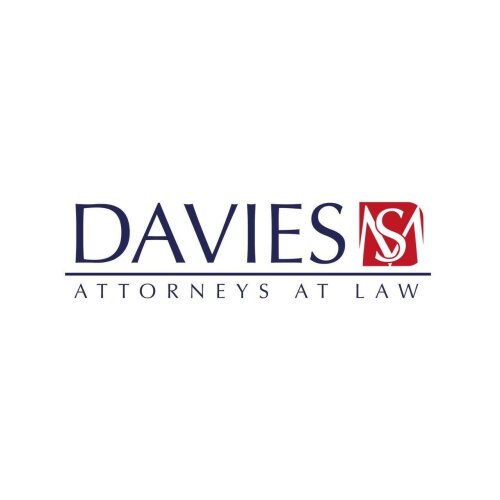Best General Litigation Lawyers in Cambodia
Share your needs with us, get contacted by law firms.
Free. Takes 2 min.
Or refine your search by selecting a city:
List of the best lawyers in Cambodia
About Litigation Law in Cambodia
In Cambodia, litigation refers to the process of taking legal action or resolving disputes through the court system. This often involves civil lawsuits and criminal proceedings. Cambodia’s law system operates under a mix of French civil law and customary law, and has recently undergone significant transformation in an attempt to strengthen the legal and institutional framework. Despite the complexities, Litigation in Cambodia is a pivotal process for ensuring justice and resolving disputes in the country.
Why You May Need a Lawyer
Legal help in the field of litigation can be essential in numerous scenarios. If you are facing a complicated legal dispute, a lawsuit, or criminal charges in Cambodia, you would likely require a lawyer. Business disputes, property issues, personal injury claims, or family-related conflicts often involve intricate Cambodian laws, and professional legal counsel can help navigate these complexities. Lawyers can aid in preparing necessary legal documents, represent your interests in court, and advise on potential consequences and outcomes.
Local Laws Overview
Cambodian litigation law is primarily influenced by the country's Civil Procedure Code and Penal Procedure Code. For example, it recognizes both public and private lawsuits. It's important to understand that legal decisions are often based on the judge's discretion in Cambodia. Additionally, in civil litigation, the burden of proof lies on the plaintiff, whereas for criminal litigation, the burden of proof is on the prosecution. The rights to representation, defense, and appeal are also vital components of the local laws.
Frequently Asked Questions
1. How long does a typical litigation process take in Cambodia?
The process can vary significantly in length, typically ranging from several months to a few years depending on the complexity of the case.
2. Can foreigners file lawsuits in Cambodia?
Yes, foreigners have the right to file lawsuits in Cambodia, provided they comply with the local laws and regulations.
3. What type of cases are considered for litigation in Cambodia?
Litigation can cover a wide range of cases including criminal cases, civil disputes, commercial conflicts, family law matters, and others.
4. What happens if I lose a lawsuit in Cambodia?
If you lose a lawsuit, you may be liable for the judgement ordered by the court which can include monetary damages, injunctions, or other legally binding actions. You may also be responsible for the legal costs of the opposing party.
5. Can I appeal a court decision in Cambodia?
Yes, parties in a lawsuit have the right to appeal the court's decision, usually within a certain specified time frame.
6. How do I choose the right lawyer for my case?
Choosing the right lawyer often depends on their experience, expertise in the relevant area of law, understanding of local legislation, and communication skills. Personal recommendations, online reviews, and initial consultations can be helpful.
7. Can I represent myself in court?
Although self-representation is allowed, it is generally not recommended due to the complex nature of the Cambodian legal system.
8. Is there a language barrier in the Cambodian court system for foreigners?
Court proceedings in Cambodia are in Khmer. Foreign parties are allowed to engage interpreters for assistance.
9. What is the procedure for filing a lawsuit?
Generally, the procedure involves submitting a complaint at the relevant court, serving a summons to the defendant, participating in court hearings, and following through with the judgement or any subsequent appeals.
10. How can I contact a qualified litigation lawyer in Cambodia?
You should consider reaching out to Cambodia's bar association or legal aid groups, or search for reputable law firms online.
Additional Resources
Several organizations provide resources related to litigation law in Cambodia. These include the Cambodian Bar Association for a list of practicing lawyers, the Ministry of Justice for information on current legislation, and various legal aid organizations such as the Cambodian Defenders Project, providing legal assistance to those who cannot afford it.
Next Steps
If you need legal assistance in the field of litigation in Cambodia, the first step is to identify and consult with a experienced lawyer. Ensure that you fully understand the legal issue you're facing, your rights amongst the Cambodian laws, and the potential implications. It's important to act swiftly, taking into account any time limitations, and maintain clear and consistent communication with your attorney during the process.
Lawzana helps you find the best lawyers and law firms in Cambodia through a curated and pre-screened list of qualified legal professionals. Our platform offers rankings and detailed profiles of attorneys and law firms, allowing you to compare based on practice areas, including General Litigation, experience, and client feedback.
Each profile includes a description of the firm's areas of practice, client reviews, team members and partners, year of establishment, spoken languages, office locations, contact information, social media presence, and any published articles or resources. Most firms on our platform speak English and are experienced in both local and international legal matters.
Get a quote from top-rated law firms in Cambodia — quickly, securely, and without unnecessary hassle.
Disclaimer:
The information provided on this page is for general informational purposes only and does not constitute legal advice. While we strive to ensure the accuracy and relevance of the content, legal information may change over time, and interpretations of the law can vary. You should always consult with a qualified legal professional for advice specific to your situation.
We disclaim all liability for actions taken or not taken based on the content of this page. If you believe any information is incorrect or outdated, please contact us, and we will review and update it where appropriate.
Browse general litigation law firms by city in Cambodia
Refine your search by selecting a city.











